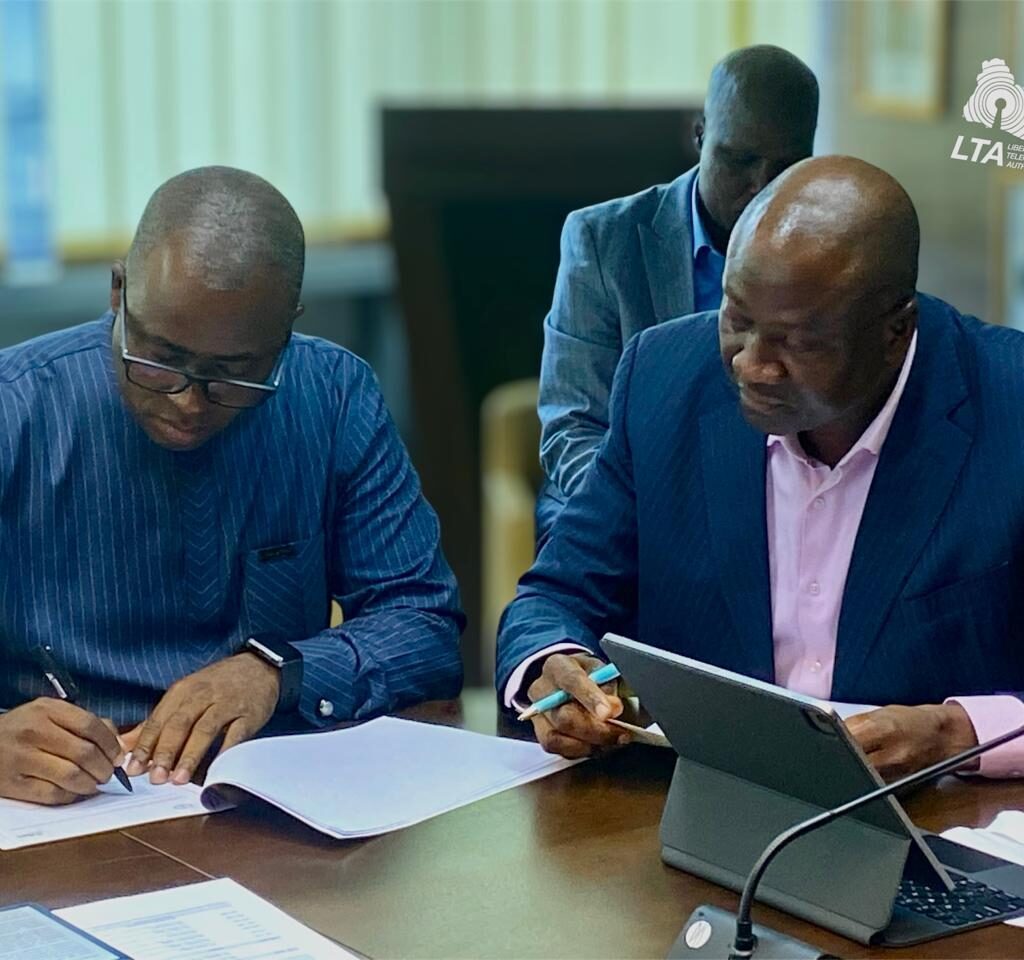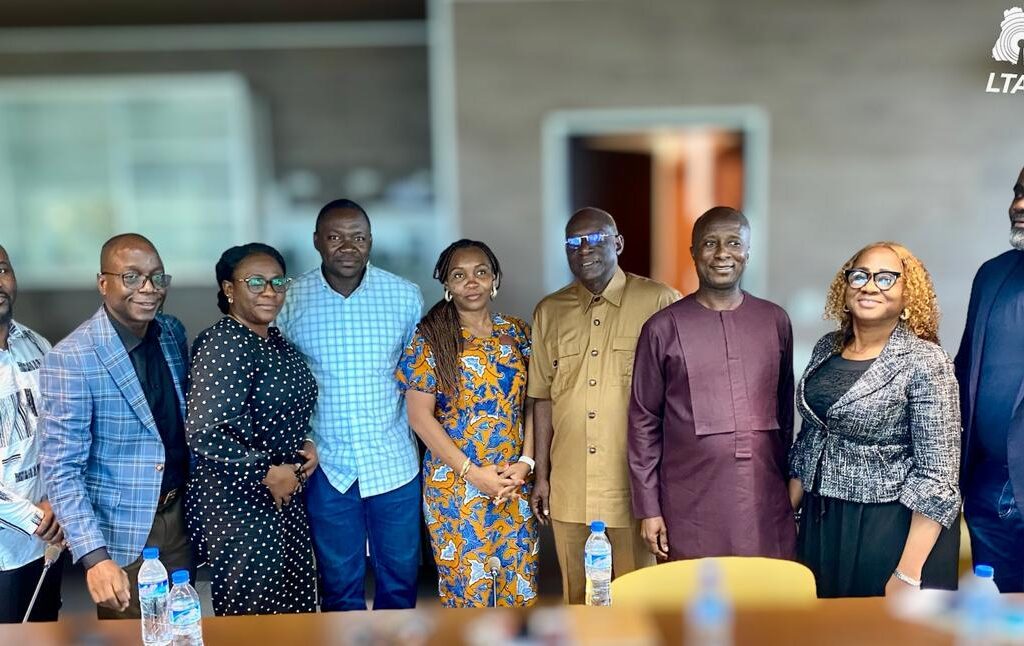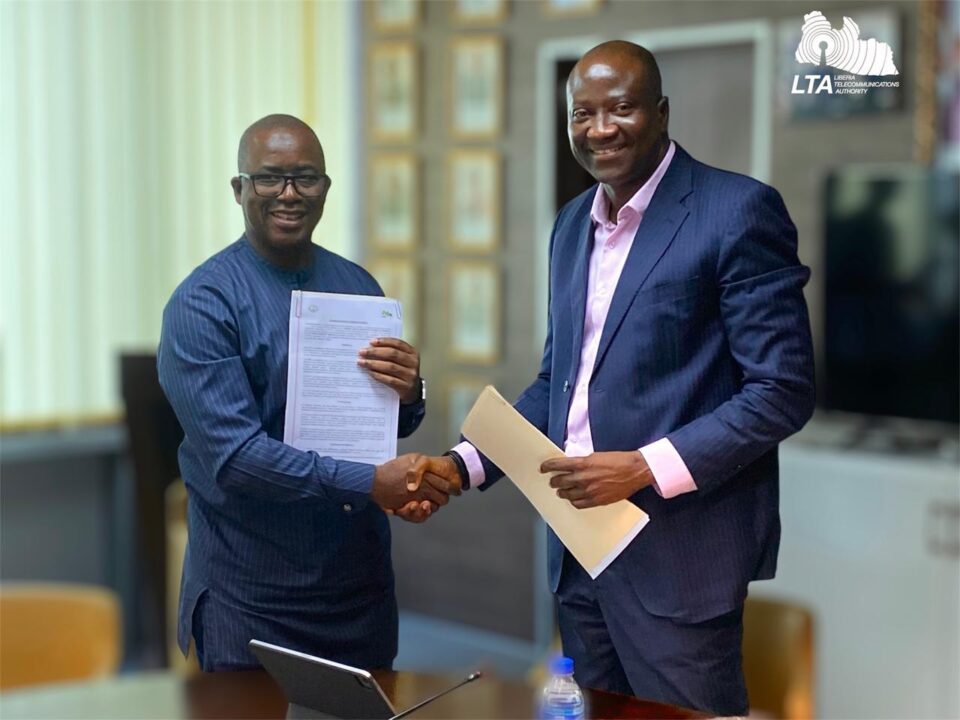By Alfred Kollie alfredkolliejr92@gmail.com
Monrovia, Liberia – The Liberia Telecommunications Authority (LTA) and the Central Bank of Liberia (CBL) have signed a Memorandum of Understanding (MOU) aimed at enhancing the digital economy in the country and ensuring compliance with national regulations.
The MOU, which was signed on Friday, August 30, 2024, establishes a collaborative framework between the LTA and CBL to enforce and ensure adherence to respective Acts, regulations, rules, guidelines, and standards.
It also outlines a scope of cooperation and collaboration for smooth financial transactions using telecommunication.

The MOU maintains the statutory independence, authority, and responsibilities of both parties.
In addition, the LTA will join the National Payments Council (NPC), a consultative body that supports the Central Bank in ensuring safe and efficient payment and securities clearance and settlement systems.
In Liberia, banking institutions and other financial service providers increasingly depend on public telecommunications networks to deliver financial services securely and efficiently.
While this convergence of economic and telecommunications services brings many benefits, it also poses challenges such as unfair access to networks, sub-optimal service quality, fraud, cyber-attacks, and other related issues affecting consumers.
The primary goals of the MOU are to enhance cooperation and collaboration between the LTA and CBL, accelerate financial inclusion, bridge access gaps, and facilitate affordable access to economic and telecommunications services.

It also aims to support efficient access of financial institutions to telecommunications networks, ensure the security of telecommunications networks delivering financial services, and comply with consumer protection and data privacy requirements.
Furthermore, the MOU seeks to ensure compliance with laws, regulations, and interoperability of networks, services, and systems.
It also addresses concerns such as electronic transaction fraud, privacy breaches, cyber-attacks, and incident recovery.
Public awareness activities on laws, regulations, and policies affecting both sectors are also part of the agreement.
The agreement also involves implementing government policies to enhance access to financial services through telecommunications and developing and enforcing technical standards and guidelines for telecommunications networks and ICT.
The MOU outlines several key areas of cooperation and collaboration.
These include information sharing, technical input, technical expertise, competition and cost analyses, public awareness, technical standards, and regulatory efforts.
These areas will contribute to licensing, regulating, and monitoring financial institutions and services, as well as drafting and reviewing legal and regulatory instruments affecting both sectors.
The MOU also involves collaborating on conducting analyses for access to essential services and facilities needed for financial services over licensed telecommunications networks.
The signing of the MOU marks a significant step towards the digitalization of Liberia’s economy. It is expected to promote financial inclusion and address challenges that are common to both the financial and telecommunications sectors.
With this agreement, Liberia is taking proactive measures to enhance its digital economy, ensuring compliance with regulations and improving access to financial services for all its citizens.

